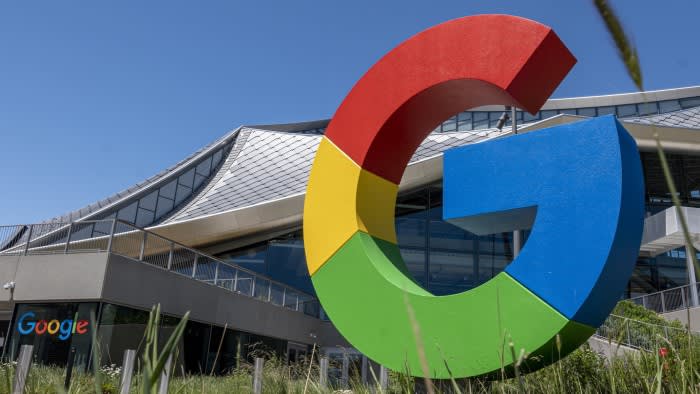Unlock the Editor’s Digest for free
Roula Khalaf, Editor of the FT, selects her favourite stories in this weekly newsletter.
Alphabet’s profit jumped 34 per cent in the third quarter, as the US search giant reported strong growth in cloud computing amid robust demand for computing and data services used to train and run generative artificial intelligence models.
Net income was $26.3bn compared with $19.7bn in the same period a year earlier, exceeding analysts’ expectations for $22.8bn, the parent company of Google reported on Tuesday. Revenue rose 15 per cent to $88.3bn in the three months through to the end of September, beating the average estimate for $86.3bn.
The standout unit was Google Cloud, where revenue increased 35 per cent to $11.4bn and operating profit increased sevenfold to $1.9bn from $266mn in the same period last year.
Revenue at the company’s core search and advertising businesses rose 10 per cent to $65.9bn. YouTube rose 12 per cent to $8.9bn for the quarter — Google noted that its ads and subscription revenues surpassed $50bn over the past four quarters for the first time as the platform expands into sports such as the National Football League.
“We generated strong revenue growth in the quarter, and our ongoing efforts to improve efficiency helped deliver improved margins,” said chief executive Sundar Pichai. “In Cloud, our AI solutions are helping drive deeper product adoption with existing customers, attract new customers and win larger deals.”
“The results show a strong beat across all segments, with notable strength in subscriptions and Cloud,” said Jefferies analyst Brent Thill.
Alphabet shares rose more than 4 per cent in after-hours trading. The stock had previously gained 22 per cent this year, giving it a market capitalisation of $2.1tn and making it the fourth most valuable listed company in the world behind Apple, Nvidia and Microsoft.
Google is the first of Silicon Valley’s tech giants to report earnings this quarter, and its financials underline the vast sums that are being spent on data centres and advanced chips that power AI.
Microsoft, Alphabet, Amazon and Meta all revealed massive increases in capital expenditure in the first six months of 2024 — totalling $106bn — while their executives brushed off market concerns about spending to pledge more investment this year and in 2025.
Alphabet’s capex rose again to $13.1bn in the quarter, slightly more than in the prior three months and up significantly from the $8.1bn spent in the same period last year.
While Alphabet has shown strong earnings momentum this year, it faces threats on several fronts. A new generation of AI-powered chatbots such as OpenAI’s ChatGPT and Anthropic’s Claude are challenging its core search business. In response, Google has rolled out “AI Overviews” at the top of results pages to provide direct answers to queries, rather than just a list of links.
More immediately, Google faces the prospect of being broken up after losing an landmark antitrust case brought by the US Department of Justice, which resulted in a ruling that determined Google’s search business had engaged in anti-competitive monopolistic behaviour. The company also lost an antitrust case against its Play app store brought by Fortnite developer Epic and faces a trial in a second DoJ case over its ad tech business.
The company said it would pay a third-quarter dividend of 20 cents a share worth about $2.5bn. The payout follows Google’s first dividend earlier this year, breaking with a past policy to only use share buybacks to return money to investors.


